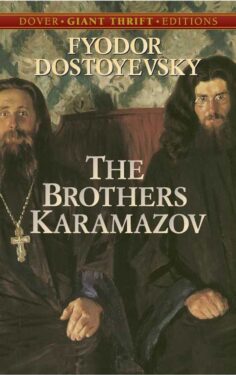
What I wrote in last week’s column about Pope Francis’ view of freedom is still on my mind. In the history of philosophy, the first philosopher who strongly emphasized that humans coexist, that we have the power to influence others because we, as it were, are tied together, was Karl Marx.
He used this idea in relation to people’s work, stressing that their work situation influenced every aspect of their lives — their politics, their social life, even their philosophy and religion. In last week’s column, I pointed out that Pope Francis claims that how well I know myself will significantly influence how well I know others, and how deeply I know others will greatly influence how deeply I know myself.
How deeply I know either others or myself will depend on free choices I make in trying to be honest with myself and how I freely choose to be open and receptive in getting to know others. In trying to emphasize this in philosophy classes when lecturing on the mystery of love, I say to the students, “I cannot be the best Robert Lauder without you, and you cannot be the best persons you can be without me. I need you, and you need me.” I find that amazing.
The deepest needs we have are the need to love and the need to be loved. How deeply we can influence one another the pope emphasizes in his new book “Let Us Dream Together: the Path to a Better Future.” He relates the profound truth that we deeply need one another to those who risked their lives during the pandemic to help others. He writes the following:
“So many of the nurses, doctors, and caregivers paid that price of love, as did priests, religious and ordinary people whose vocation is service. We return their love by grieving for them and honoring them.
“Whether or not they were conscious of it or not, their choice testified to a belief that it is better to live a shorter life serving others than a longer one resisting that call. That’s why, in many countries, people stood by their windows or on their doorsteps to applaud them in gratitude and awe. They are the saints next door, who have awoken something important in our hearts, making credible once more what we desire to instill by our preaching.
“What a sign of contradiction to the individualism and self-obsession and lack of solidarity that so dominates our wealthier societies! Could these caregivers, sadly gone from us now, be showing us the way we must rebuild?” (p. 13)
One of my closest friends was an essential caregiver during the pandemic. She never referred to the risks she was taking nor the danger of the situation she put herself in every time she went to work. Eventually, she did get the virus though she was non-symptomatic. She did not make a fuss about being sick, and thank God she was fine after a two-week quarantine. Looking back on our phone conversations during the pandemic and during her illness, I am surprised that I never mentioned the chances she was taking. Why didn’t I? I suspect that it was the kind of unselfishness I have come to expect from her. Unselfishly giving herself was how she chose to live, and I was not surprised at her courage and self-forgetfulness during the pandemic. Serving others is why she chose her vocation, and unselfishness characterizes her entire life.
Pope Francis points out that we are born as beloved creatures of our Creator, God of love. Our existence is an unearned gift. Deep within us, there is a call to live as a gift in relation to God and our brothers and sisters. Society can blind us to our radical call to live as a gift, but we must not allow that to happen. The pandemic heroes can remind us that the most profound meaning of human existence is the vocation to live as a self-gift. This is another way of saying that the most profound truth about us is that we are called to be lovers.
During the pandemic, I have been re-reading Dostoyevsky’s masterpiece, “The Brothers Karamazov.” The mystery of love is at the heart of this great work. Perhaps the mystery of love is present in one way or another in all great literature. It seems impossible for Pope Francis to write anything without linking it to the mystery of love. What is especially wonderful is that he does it in a way that can speak to everyone. I love the expression “saints next door” and that these saints are “the antibodies to indifference.”
Father Lauder is a philosophy professor at St. John’s University, Jamaica. He presents two 15-minute talks from his lecture series on the Catholic Novel, 10:30 a.m. Monday through Friday on NET-TV.
